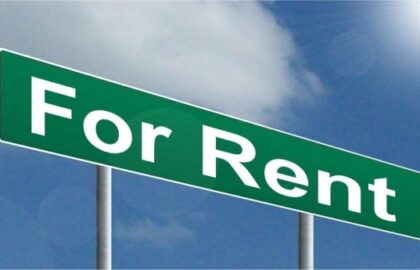
You’ve taken the plunge into the world of property ownership, and now you’ve got a rental estate to manage.
With such extensive ownership comes responsibility over property management. Luckily, you can leave that job to the professionals. But here’s the catch.
You’ve got to navigate the labyrinth of property management fees to make sure your investment stacks up the way you want it to. Plus, you’ll want to steer clear of unknown hidden costs.
In this guide, we’re going to break down the cost of property management in Australia, from the standard monthly management payments to the initial inspection fees.
Property Management Fees in Queensland
Property management fees in Queensland, including Brisbane, vary widely. The most recurring cost is the management fee, which covers the day-to-day management of your property while it’s leased.
This fee is typically calculated as a percentage of the weekly rent and may sometimes be called the rent collection fee.
For instance, if you have a typical Brisbane property renting for $405 a week, you can expect to pay roughly $1,400 to $2,500 in management fees over the course of a year.
On average, you can expect to pay around 9% of the weekly rent as a management fee. However, it’s essential to note that this percentage can vary widely across Queensland, with fees spanning from 7% to 12%.
Apart from the management fee, there’s also the letting fee to consider. This fee comes into play when your Property Manager needs to find a new tenant at the start of a lease. The letting fee typically amounts to 1-2 weeks’ worth of rent.
Cost of Rental Property Management Fees
In Australia, an average property management company typically charges 5% to 15% of your rental income, depending on various factors.
First, you’ve got your property type. Is it a single-family home, a multi-unit building, or something else? That matters because different property sizes, square footage, and types may come with different management fees.
Then, there’s your property’s location. Commission levels vary from state to state. On top of that, you’ll need to consider the services you want.
Some property management firms offer all-inclusive packages that cover everything from advertising to tenant management, while others may charge separately for additional services.
On average, the typical property management fee hovers around 7.5% across Australia.
But remember, this is just an average. Your actual costs depend on your unique circumstances. For instance, in New South Wales, you might find some of the lowest ongoing property management fees in the country, averaging around 5.8%.
Meanwhile, in Tasmania, the fees tend to be a bit higher, with an average of 8.7%.
Types of Rental Property Management Fees
Rental property management fees are broken down into a fee structure. As a property owner, you can expect payments like advertising, leasing, and maintenance fees.
Monthly Property Management Fee
This fee, typically ranging from 5% to 15% of your weekly rental income, covers essential property management services like rent collection, maintenance coordination, and tenant communication.
Leasing Fees
As the property management company secures new prospective tenants, you’ll have to pay leasing fees. They usually amount to one to two weeks’ worth of rent. You’re essentially paying the service to conduct interviews, do rental checks, and prepare legal documentation.
Lease Renewal Fees
These fees, typically a percentage of the annual rent return, are incurred when extending a lease. They take care of administrative tasks tied to lease renewals.
For information on how this would apply to other agreement types, take a read of this detailed guide to periodic lease agreements and how they work.
Advertising Fees
Property management services charge advertising costs to market your rental investment property. The cost can vary depending on the scope of marketing efforts required.
It can involve internet marketing, “for sign” banners, and photography payments.
Goods and Services Tax (GST)
You’ll usually need to pay Goods and Services Tax on property management costs. Be sure to confirm that the quoted fee includes GST before you seal the deal with a property management company.
Annual Statement Fees
Receiving your annual statement, which summarises all the financials for the year, often incurs a small cost. It’s also worth noting that some property management companies may charge an extra fee for monthly reporting.
Tribunal Fees
In cases of legal disputes with tenants, you might encounter tribunal fees, covering expenses such as filing costs and legal representation. It’s typically charged at an hourly rate.
Initial Property Inspection
Charged at the onset of a property management agreement, this fee covers property assessment, the development of a maintenance plan, and ensuring compliance with local regulations.
Routine Inspection
In your property management agreement, it’s common for the property manager to swing by your rental property for a weekly inspection to make sure everything’s in good shape. And yes, they might tack on a service fee for these check-ins.
Termination Fees
If you need to terminate the agreement mid-lease on a locked contract, you’ll likely incur termination fees from the rental property manager.
How Property Management Fees Are Charged
Property management fee structures can vary, and it’s essential to know the difference.
Percentage-Based Pricing
Most property management fees are a percentage of the gross weekly rental amount. A lower commission rate could result in a reduced inclusion of services. So, always ask for a fee breakdown before you commit to a property manager.
Calculating the Amount
To figure out the dollar amount, multiply your property’s weekly rental rate by the commission rate percentage. Use this formula:
Property Price x Commission Rate (%) = Property Management Commission Payable
For example, on a property renting for $600 per week with a 6.8% commission rate:
$600 (weekly rent) x 0.068 (6.8%) = $40.8 (weekly commission)
- Remember: This isn’t your only fee. Property managers offer comprehensive services beyond rent collection. You might encounter additional charges for other services.
Flat Rate Pricing
Some property management agencies opt for a flat fee instead of percentage-based charges. You might even find services offering a flat fee for “all-inclusive” property management, where all costs are bundled together.
Nevertheless, keep in mind that such services might not provide the same level of personalised, local expertise and accessibility.
Final Thoughts
In conclusion, understanding property management fees, whether you’re dealing with monthly rent, various property types, or routine maintenance, is essential for rental property owners.
Consulting a professional property manager and having a clear lease agreement in place is key to successful property management.








